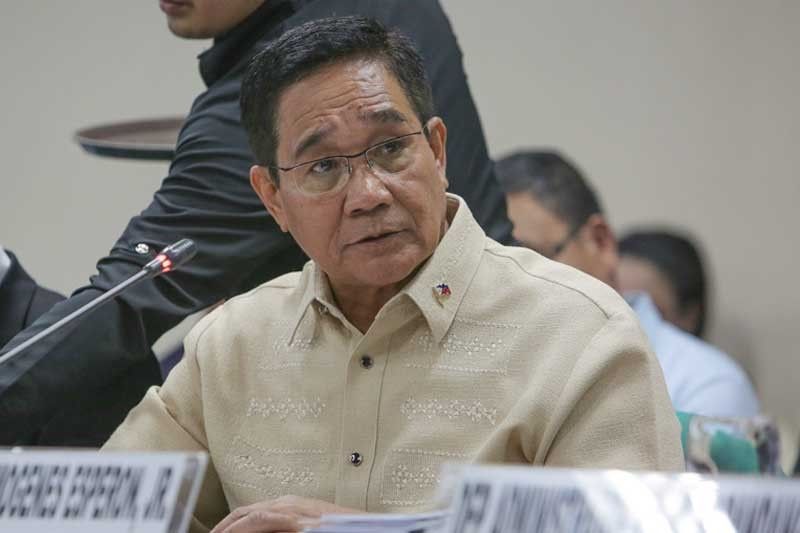National Security Council monitoring cocaine dumping in Philippine waters

MANILA, Philippines — The National Security Council is working with foreign counterparts to identify the groups behind cocaine shipments that were dumped around the eastern seaboard of the Philippines.
National Security Adviser Hermogenes Esperon Jr. said President Duterte’s earlier warnings on foreign drug syndicates have been confirmed by recent operations of the Philippine Drug Enforcement Agency (PDEA).
He said the PDEA is working double time along with foreign counterparts, intensified by high-level intelligence cooperation with other countries to address the drug problem.
“If they are trying to open a new market, then that’s one thing that we would like to go to not only with PDEA and law enforcement but with the international community,” Esperon said.
“This is just a confirmation that the South American drug rings have entered the country, Sinaloa for example,” Esperon said yesterday during the weekly Kapihan sa Manila Bay hosted by Star Associate Editor Marichu Villanueva.
Following the recovery of several cocaine blocks in Philippine territorial waters, Esperon did not discount the possibility that foreign drug cartels have infiltrated the Philippine market.
“The source of cocaine is coca (plant) and it’s grown in South America, and it could be that is the source but the traders and carriers may not be necessarily from that area, so some could have a link,” Esperon added.
Multimillion pesos worth of cocaine bricks were recovered in Dinagat and Siargao islands, the waters off Camarines Norte and Quezon province. There were also blocks of drugs found off Gabaldon in Nueva Ecija, Davao Oriental and Tandag in Agusan del Sur.
Even before the cocaine hauls, Duterte has regarded the drug menace as a national security concern, and that he will not stop until the problem has been addressed during the remainder of his six-year term.
Transshipment point
Esperon said authorities are still investigating if the drug syndicates are using the Philippines as a transshipment point for shabu or cocaine.
“It could be a transshipment or it could be as user. If you have a clientele of five million (out of) the 105-million population, that’s a big number,” the Palace official said. “We will not allow that to happen.”
Asked if the drug cartels could be provoking President Duterte who has been harsh in his campaign against illegal drugs, Esperon said that the present administration will not stop until the drug menace is arrested by the government.
He admitted that the situation has become very alarming.
“By all means, it is alarming. We cannot just let this pass,” Esperon said.
“There are leads, but we don’t want to talk about leads. We don’t want to talk about deployments… What do we want to know? We want to arrest people. We want to know the leads, let us not talk about whom we are running after,” he added.
Esperon admitted that the geographical outlay of the country is a challenge to the government’s assets to secure the territorial area.
He said the government is working to acquire more equipment to patrol the Philippines’ seas.
Philippine National Police (PNP) chief Director General Oscar Albayalde said the cocaine dumped in coastal areas in the eastern seaboard could be bound for Australia.
Albayalde raised the possibility after being informed by their counterparts from the Australian Federal Police that it appeared the drugs recovered were similar to those seized in Papua New Guinea and Solomon Islands sometime in June and September last year.
Albayalde spoke with police officials from Australia during the inauguration of the Philippine Internet Crimes Against Children Center (PICACC) at Camp Crame.
Albayalde also clarified that President Duterte’s declaration that there are now seven to eight million drug users in the country is not an indication that the government’s war on illegal drugs was a failure.
“Not necessarily, because what we’re looking at probably is the supply. The supply has increased,” Albayalde said.
Albayalde said that Duterte’s figure has accumulated over the years since he took office.
He added that Filipinos are becoming more educated on the ill effects of illegal drugs.
Albayalde also attributed the increase in the number of drug users to the barangay anti-drugs abuse councils which have been active in reporting suspected drug users in their respective communities. – With Cecille Suerte Felipe, Emmanuel Tupas, Janvic Mateo, Ding Cervantes
- Latest
- Trending






























